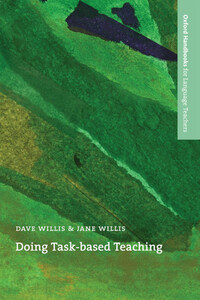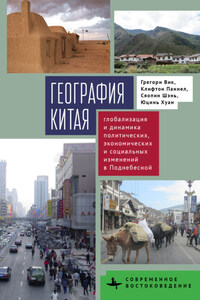Also published in
Oxford Handbooks for Language Teachers
ESOL: A Critical Guide
Melanie Cooke and James Simpson
The Oxford ESOL Handbook
Philida Schellekens
Teaching American English Pronunciation
Peter Avery and Susan Ehrlich
Success in English Teaching
Paul Davies and Eric Pearse
Doing Second Language Research
James Dean Brown and Theodore S. Rodgers
From Experience to Knowledge
Julian Edge and Sue Garton
Teaching Business English
Mark Ellis and Christine Johnson
Intercultural Business Communication
Robert Gibson
Teaching and Learning in the Language Classroom
Tricia Hedge
Teaching Second Language Reading
Thom Hudson
Teaching English Overseas: An Introduction
Sandra Lee McKay
Teaching English as an International Language
Sandra Lee McKay
How Languages are Learned (3rd edition)
Patsy M. Lightbown and Nina Spada
Teaching Second Language Listening
Tony Lynch
Communication in the Language Classroom
Tony Lynch
Teaching Young Language Learners
Annamaria Pinter
Exploring Learner Language
Elaine Tarone and Bonnie Swierzbin
Doing Task-based Teaching
Jane Willis and Dave Willis
Explaining English Grammar
George Yule
Great Clarendon Street, Oxford OX2 6DP
Oxford University Press is a department of the University of Oxford. It furthers the University’s objective of excellence in research, scholarship, and education by publishing worldwide in
Oxford New York
Auckland Cape Town Dar es Salaam Hong Kong Karachi Kuala Lumpur Madrid Melbourne Mexico City Nairobi New Delhi Shanghai Taipei Toronto
With offices in
Argentina Austria Brazil Chile Czech Republic France Greece Guatemala Hungary Italy Japan Poland Portugal Singapore South Korea Switzerland Thailand Turkey Ukraine Vietnam
OXFORD and OXFORD ENGLISH are registered trade marks of Oxford University Press in the UK and in certain other countries
© Oxford University Press 2007
The moral rights of the author have been asserted
Database right Oxford University Press (maker)
First published 2007
2012 2011
10 9 8 7 6 5
All rights reserved. No part of this publication may be reproduced, stored in a retrieval system, or transmitted, in any form or by any means, without the prior permission in writing of Oxford University Press (with the sole exception of photocopying carried out under the conditions stated in the paragraph headed ‘Photocopying’), or as expressly permitted by law, or under terms agreed with the appropriate reprographics rights organization. Enquiries concerning reproduction outside the scope of the above should be sent to the ELT Rights Department, Oxford University Press, at the address above
You must not circulate this book in any other binding or cover and you must impose this same condition on any acquirer
Photocopying
The Publisher grants permission for the photocopying of those pages marked ‘photocopiable’ according to the following conditions. Individual purchasers may make copies for their own use or for use by classes that they teach. School purchasers may make copies for use by staff and students, but this permission does not extend to additional schools or branches Under no circumstances may any part of this book be photocopied for resale
Any websites referred to in this publication are in the public domain and their addresses are provided by Oxford University Press for information only. Oxford University Press disclaims any responsibility for the content
ISBN: 978-0-19-442210-9
Printed in China
This book is printed on paper from certified and well-managed sources.
When we began planning this book, we sent out a request to language teachers worldwide who were involved in TBT. We asked them to send us tasks which had worked well with their learners together with outline lesson plans to go with them. We also asked them what advice they would give to other teachers hoping to implement TBT, and to report difficulties and problems they had encountered themselves and had heard of from colleagues in connection with TBT. The response was magnificent. So first, and most importantly, we would like to thank the contributors listed at the end of this book, not only for sending us their tasks and ideas, but also for responding so willingly to our follow-up requests for more details. Sadly we were unable to find space for all the tasks sent in – we received well over 100 – but everyone’s advice has been collated and incorporated at relevant stages in the book, and especially in the final chapter. It is their co-operation that makes this book truly worthy of its title: Doing Task-based Teaching.
We’d also like to thank the large number of teachers and trainers whom we have met and talked to over the past ten years at conferences, workshops, and talks in Argentina, Brazil, Canada, Chile, Germany, Greece, Ireland, Italy, Japan, New Zealand, Pakistan, Portugal, South Korea, Spain, Switzerland, Taiwan, Thailand, Turkey, UAE, UK, and more recently at IATEFL conferences. We would also like to include participants in the TBLT 2005 conference at Leuven who sent us feedback through Steve Mann, who attended that conference. By asking questions and filling in slips of paper in workshop sessions, teachers have, sometimes unwittingly, contributed advice and ideas that have helped to shape this book We should also thank Masters students at Birmingham and Aston Universities who, through their assignments and research, have given us useful insights into classrooms all over the world and demonstrated how TBT can work in practice.








